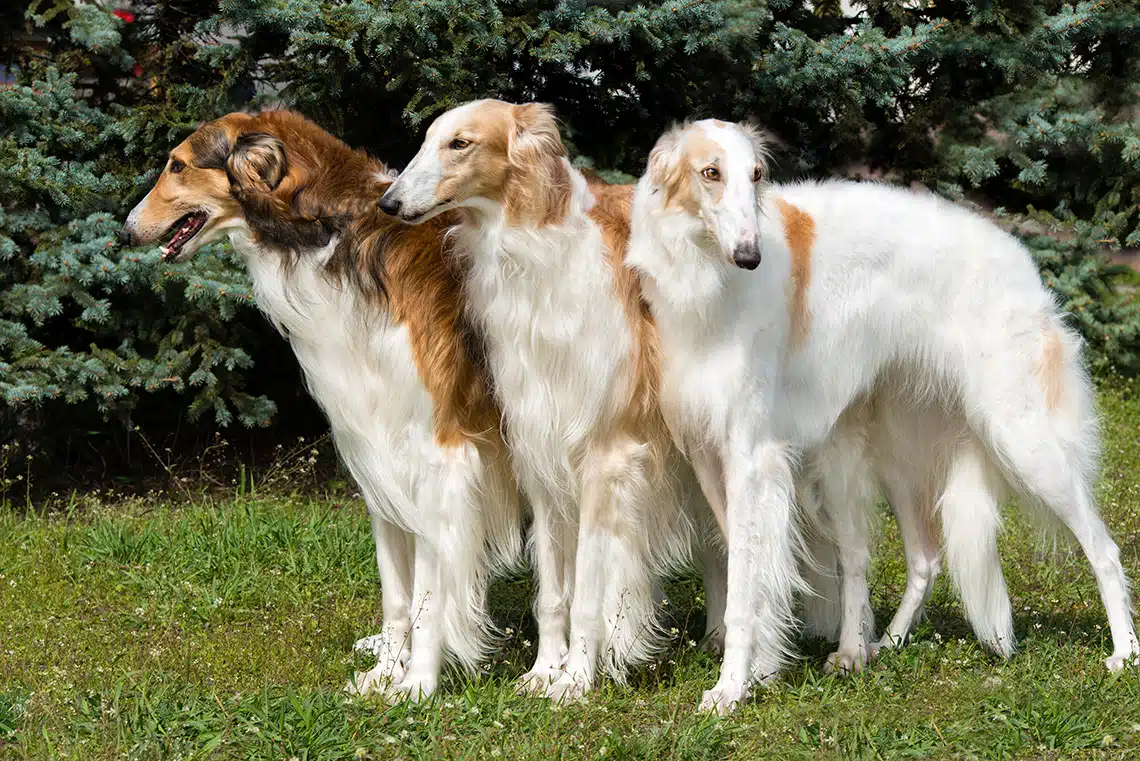Some dog breeds are not prone to active barking, and this can be a deciding factor when choosing a pet, especially for people who live in apartments or prefer a quiet environment. Dogs that don’t bark are often known for their quiet nature and alternative ways of communicating. They rarely make sounds and, instead of the usual barking, use other means of communication.
The reasons why some dogs do not bark lie both in physiology and in behavioral characteristics. Many of these breeds were bred for tasks that did not require loud signals. For example, hunting or herding dogs are breeds that had to work quietly so as not to frighten the prey or herd. Their behavior involves minimal vocal cues and relies more on eye contact, facial expressions, or body movements.
However, this does not mean that non-barking dogs do not make sounds at all. They can howl, whine, growl or even make specific sounds specific to each breed. This behavior helps them interact with their owners without making too much noise.
Why do some dogs not bark?
Physiological and behavioral characteristics explain why there are dog breeds that do not know how to bark. First, the anatomical structure of the larynx or other physiological features may limit the ability to produce loud sounds. For example, the Basenji dog breed is known for its unique larynx structure, which prevents them from barking like other dogs.
Behaviorally, many of these breeds were bred for specific tasks that did not involve active vocal communication. For example, hunting breeds used their ability to chase prey without making too much noise, so as not to frighten it. The characteristics of these breeds allow them to communicate through sounds, facial expressions and body movements.
Such dogs have many advantages for living in urban conditions. They make less noise, which makes them ideal for living in apartments or for owners who value peace. Thanks to their quiet nature, these dogs do not disturb their neighbors, but retain the ability to communicate by other means.
What are the dog breeds that do not bark?
Basenji

The Basenji is a breed known for its unique ability to make yodeling sounds instead of the usual barking. Due to the special structure of the larynx, the non-barking dog breed is unable to produce a classic bark, so its representatives use a melodic “yodel” to communicate with their owners. They often express their emotions through howling or other interesting sound signals, making them particularly unique among dogs.
Greyhound

Greyhound is an aristocratic and calm breed that rarely barks. These dogs use howls or low growls to communicate, especially when they feel lonely or want attention. Despite their restraint in expressing emotions, they are very gentle and devoted to their owners. Their communication is mostly quiet and calm.
Rhodesian Ridgeback

This breed is known for its endurance and propensity for non-verbal communication. The Rhodesian Ridgeback dog rarely barks, using non-verbal cues such as body posture and tail movements to express its emotions. Their quiet nature makes them ideal dogs for those looking for a calm and quiet companion.
Salukis

Salukis are graceful, quiet and calm dogs that rarely bark. Instead, they are more likely to use howls when they need to communicate something. These dogs are famous for their independence and restraint, but at the same time they retain a strong attachment to their owners.
Shih tzu

A breed of dog that barks quite a bit, the Shih Tzu usually uses low whining or short sounds to attract attention. They are friendly and gentle dogs who are better at showing their emotions through facial expressions and behavior than through loud sounds.
Irish Setter

Irish Setters have a calm character and are known for their minimal barking. These dogs are more likely to use their bodies and movements to communicate with people and other animals. Their natural grace and elegance underline their silent yet expressive communication.
Australian Shepherd

The Australian Shepherd is a dog that does not bark, a breed that has a tendency to calm behavior. Although they may sometimes make soft sounds instead of barking, these dogs are adept at using their gaze and body movements to communicate. They are known for their attentiveness and ability to pick up commands quickly.
Soft-coated wheaten terrier

This breed of dog, which does not know how to bark often, usually behaves in a calm and balanced manner. If the Wheaten Terrier wants to attract attention, it may use whining or growling, but they remain very quiet and gentle companions.
Scottish Deerhound

Scottish Deerhounds are quiet and respectful dogs that rarely bark. They tend to interact more calmly, often using non-verbal means of communication such as movements or postures. This breed is known for its endurance and minimal sound activity.
Bulldog

Bulldogs are a classic example of a dog breed that can’t bark. Instead of barking, they are more likely to use grunts, growls, or even snorts to express their emotions. Their calm nature makes them great pets for people who value quiet.
Cavalier King Charles Spaniel

Cavaliers have a very calm character and rarely bark. They mostly use soft sounds, whimpers, or facial expressions to interact with their hosts. This breed is gentle and gentle, which makes it ideal for family life.
Bernese Mountain Dog

Bernese mountain dogs are calm, balanced dogs that rarely bark. Their penchant for quiet interaction makes them great companions for families or people looking for a quiet but loyal companion.
The benefits of keeping dogs that don’t bark
Keeping dogs that don’t bark has many benefits, especially for those who live in urban environments or in apartments. One of the biggest advantages of such dogs is minimal noise, which is especially important in densely populated areas, where loud barking can cause conflicts with neighbors. They won’t bother you with constant barking, but remain great companions for interaction and play.
Such dogs are noted for their balanced behavior and lack of excessive excitability, which makes them excellent pets. Due to their quiet nature, they are less prone to stress and their communication is often based on non-verbal cues or soft sounds.









